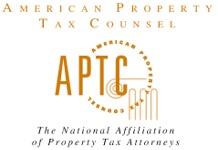November 15, 2023
By: Nicholas W. Vitti Jr. and Joseph D. Szerejko
2023 Municipal Revaluations
It is always important to carefully review your tax bill and/or notices of assessments, but even more so in the year in which your city or town conducts a revaluation.
Each assessment should be carefully reviewed, even if your assessment has not increased substantially, as an appeal immediately after a revaluation maximizes a property owner’s potential tax savings.
Connecticut law requires that each municipality conduct a general revaluation of the real estate within its borders at least once every five years.
The purpose of a revaluation is for a municipality to determine the market value of real estate to be used to calculate property taxes.
Once a property’s value is set in a general revaluation, it remains constant over the entire five-year cycle, absent appeal, demolition, improvements or expansion. Of course, the annual taxes usually increase, as a municipality’s mill rate increases incrementally from year to year. Municipalities across the state are on differing revaluation cycles. The following is a list of Connecticut municipalities conducting revaluations this year:
| Avon | New Canaan |
| Bethany | New Hartford |
| Bethlehem | New London |
| Bolton | Norfolk |
| Burlington | Norwalk |
| Canton | Norwich |
| Chaplin | Old Saybrook |
| Cheshire | Orange |
| Chester | Rocky Hill |
| Darien | Scotland |
| East Granby | Sharon |
| Eastford | Sherman |
| Essex | Suffield |
| Franklin | Union |
| Hampton | Washington |
| Harwinton | Watertown |
| Kent | Weston |
| Killingly | Wethersfield |
| Lebanon | Willington |
| Litchfield | Windham |
| Lyme | Windsor |
| Madison | Woodbury |
If your municipality is conducting a general revaluation for the October 1, 2023 Grand List you will receive a notice of tax assessment change soon, if you have not already.
Once the notices are issued there may be a chance to meet informally with the assessor to discuss the new assessment, which should represent 70 percent of the fair market value of your real estate. However, if a property owner wishes to challenge the assessment formally, a written appeal must be filed with the local Board of Assessment Appeals by the February 20, 2024 statutory deadline.
It is in your best interest to be proactive in monitoring the revaluation process and your new assessment so that you can take all necessary steps to ensure that the assessment is equitable.
News on the Newly Enacted Tax-Payer Appraisal Deadline
While we have deadlines and key dates fresh on the mind, 2023 was the inaugural year for a new deadline that was implemented into Connecticut's overvaluation statute, C.G.S. 12-117a, by the Connecticut General Assembly. Per the newly amended statute, if a taxpayer brings an overvaluation appeal on real property that has an assessed value over $1 million, the taxpayer is now required to file an appraisal of the property with the superior court by no later than 120 days after commencing the appeal.
It remains to be seen what relief, if any, a taxing authority may seek from the court if a taxpayer fails to meet this deadline, but expect some case law to develop on this subject if the statute is not amended in future legislative sessions. One recent superior court decision involving a tax appeal captioned as Shortline Properties, Inc. v. City of Stamford, FST-CV23-6060950-S discussed the implications of this deadline to a certain extent, but it did not squarely address the question of what judicial relief is available to municipal defendants.
The court did make clear, however, that appraisals filed for purposes of this statutory requirement must be from the grand list date from which the taxpayer commenced the appeal. In this case, the taxpayer's appraisal appeared to be from two years prior to the grand list date in question, and the court concluded that this did not meet the appraisal requirement. That said, the case remains pending and although the court rejected the appraisal, it allowed the plaintiff to proceed with prosecuting the appeal.
For more information about upcoming revaluations and property tax appeals, contact Nicholas W. Vitti Jr. at 203.653.5435 or nvitti@murthalaw.com and Joseph D. Szerejko at 860.240.6186 or jszerejko@murthalaw.com.
Murtha Cullina is the exclusive member firm in Connecticut for the American Property Tax Counsel (APTC) – the only organization of law firms providing major portfolio owners with a single source for their property tax reporting and tax reduction needs. Nicholas W. Vitti Jr. and Joseph D. Szerejko are the APTC representatives for Connecticut from Murtha Cullina.


